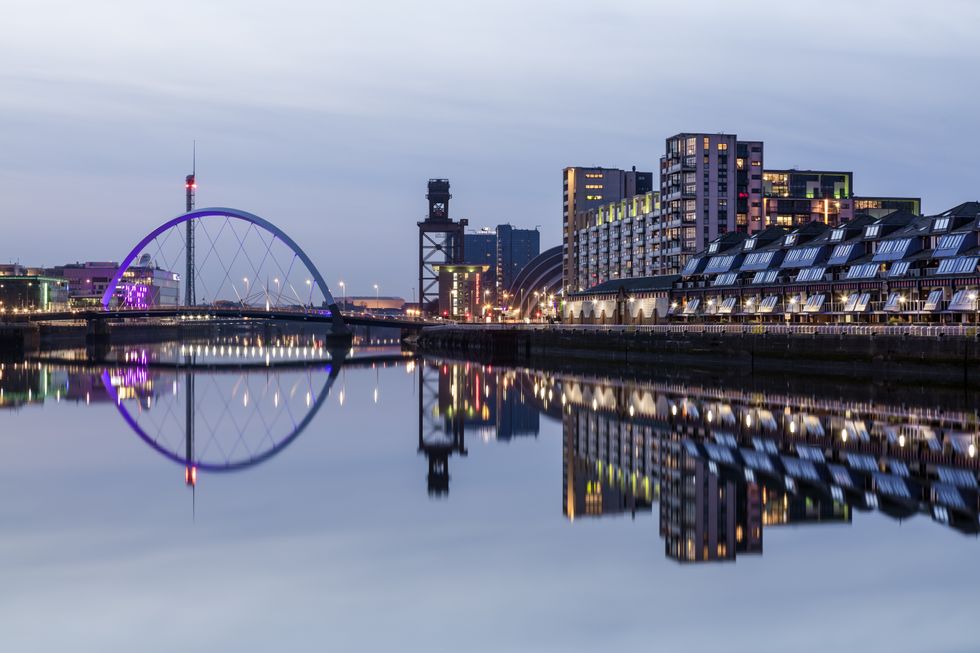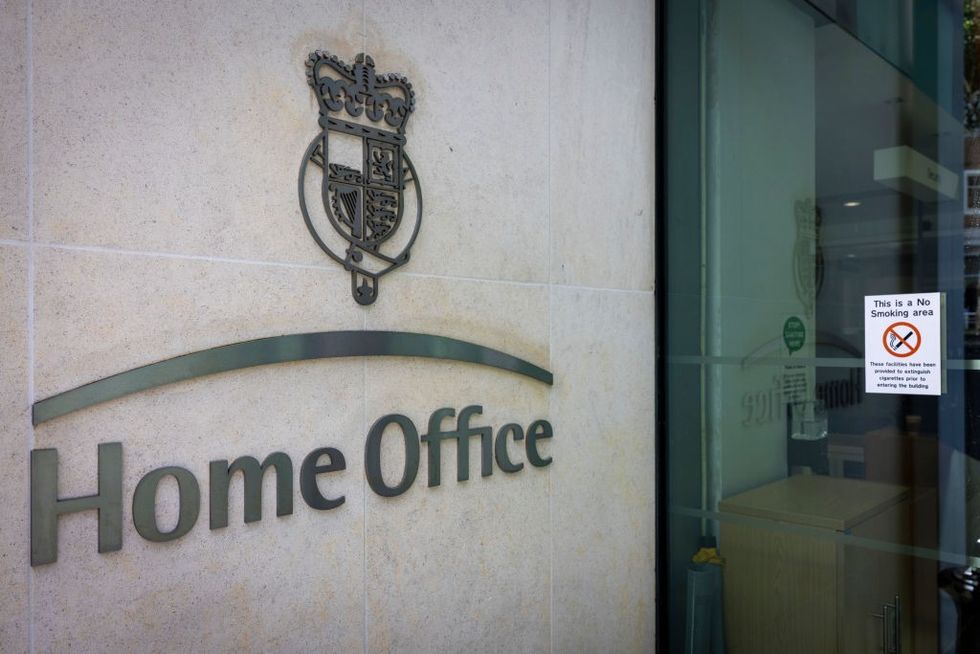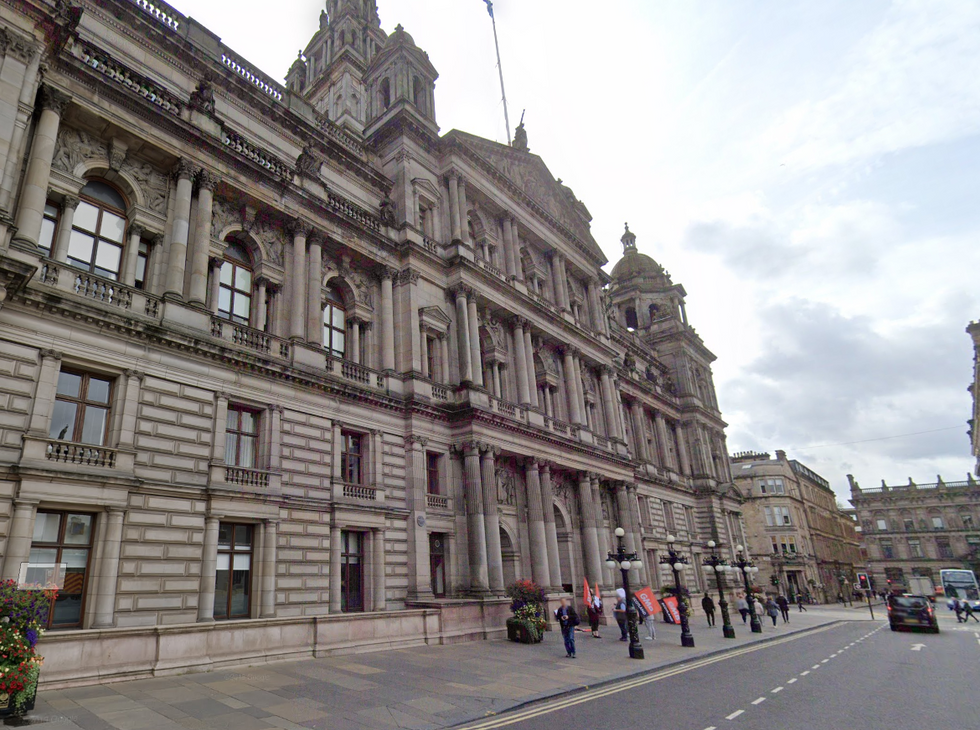Holly Bishop
Guest Reporter
Glasgow City Council has warned that the asylum system is damaging social cohesion in the city due to unprecedented pressure on housing.
Scotland's second city is now the largest dispersal area for asylum seekers in the UK after London.
The council is considering asking Sir Keir Starmer for a pause on asylum dispersal because of the strain it is placing on the city's resources.
Officials fear the number of people applying for accommodation is becoming "unsustainable" despite Glasgow's historically welcoming attitude towards refugees.

Currently, Glasgow hosts 3,953 asylum seekers sent by the Home Office, with another 240 in emergency accommodation.
Since February 2024, an additional 1,000 people have come to the city from elsewhere in the UK seeking homelessness support.
This influx includes hundreds of migrants granted leave to remain who face a 28-day deadline to find new housing after leaving government-provided lodgings.
The city is using 4,100 of its 6,735 available bed spaces for those awaiting asylum decisions - more than triple what the Home Office recommends.
Allan Casey, Glasgow City Council's convener for homelessness, has written to Immigration Minister Angela Eagle requesting a meeting to discuss the "utterly untenable" pressures facing the city.
MIRGANT CRISIS LATEST:

The SNP councillor warned that the current system is "damaging social cohesion" in Glasgow.
A meeting has been arranged for next week between the council, Scottish Government and Home Office to address the situation.
Casey told the Guardian he wanted to "work with the UK Government to discuss some potential solutions, including a pause (on dispersal) here in Glasgow."
He cautioned that government inaction could provoke "social unrest" in the city.
More than 40 per cent of homelessness applications in Glasgow come from refugee households.
Those granted refugee status typically have just 28 days to leave their temporary accommodation and find somewhere new to live.
However, the wait for documentation needed to secure tenancies and Universal Credit claims can be much longer, forcing people onto the streets.

The number of people presenting as homeless who have been given leave to remain doubled to 2,709 last year, according to a social work report.
The Home Office is piloting an extension of the move-on period to 56 days amid criticism that the existing 28-day limit is insufficient.
The Scottish Refugee Council hopes this will ease pressure on councils and alleviate some strain.
The organisation also advocates for asylum seekers to be allowed to work while their applications are being considered.
"People seeking asylum are not allowed to work to support themselves or their families and, with many living on as little as £1.25 a day, very few people have savings for a rental deposit," a spokesperson said.
Glasgow's role as an asylum dispersal hub is partly historical, as until 2022 it was the only Scottish city to which the Home Office would send asylum seekers.
More than nine in ten asylum seekers supported in Scotland live in Glasgow.
This concentration prompted the city to declare a housing emergency, which remains ongoing.
In February, the council wrote to owners of 2,500 empty homes asking them to consider selling or renting them out.
The council has even invoked compulsory purchase orders to buy up empty homes that have lain unused.
Find Out More...
Scotland's second city is now the largest dispersal area for asylum seekers in the UK after London.
The council is considering asking Sir Keir Starmer for a pause on asylum dispersal because of the strain it is placing on the city's resources.
Officials fear the number of people applying for accommodation is becoming "unsustainable" despite Glasgow's historically welcoming attitude towards refugees.

Currently, Glasgow hosts 3,953 asylum seekers sent by the Home Office, with another 240 in emergency accommodation.
Since February 2024, an additional 1,000 people have come to the city from elsewhere in the UK seeking homelessness support.
This influx includes hundreds of migrants granted leave to remain who face a 28-day deadline to find new housing after leaving government-provided lodgings.
The city is using 4,100 of its 6,735 available bed spaces for those awaiting asylum decisions - more than triple what the Home Office recommends.
Allan Casey, Glasgow City Council's convener for homelessness, has written to Immigration Minister Angela Eagle requesting a meeting to discuss the "utterly untenable" pressures facing the city.
MIRGANT CRISIS LATEST:
- Ex-BBC journalist helped Pakistani asylum seeker avoid deportation
- France FINALLY admits it can do more to stop Channel crossing crisis after pocketing £500m
- Migrant terrorist claims he would be 'executed by Albanian gangsters' in appeal against deportation

The SNP councillor warned that the current system is "damaging social cohesion" in Glasgow.
A meeting has been arranged for next week between the council, Scottish Government and Home Office to address the situation.
Casey told the Guardian he wanted to "work with the UK Government to discuss some potential solutions, including a pause (on dispersal) here in Glasgow."
He cautioned that government inaction could provoke "social unrest" in the city.
More than 40 per cent of homelessness applications in Glasgow come from refugee households.
Those granted refugee status typically have just 28 days to leave their temporary accommodation and find somewhere new to live.
However, the wait for documentation needed to secure tenancies and Universal Credit claims can be much longer, forcing people onto the streets.

The number of people presenting as homeless who have been given leave to remain doubled to 2,709 last year, according to a social work report.
The Home Office is piloting an extension of the move-on period to 56 days amid criticism that the existing 28-day limit is insufficient.
The Scottish Refugee Council hopes this will ease pressure on councils and alleviate some strain.
The organisation also advocates for asylum seekers to be allowed to work while their applications are being considered.
"People seeking asylum are not allowed to work to support themselves or their families and, with many living on as little as £1.25 a day, very few people have savings for a rental deposit," a spokesperson said.
Glasgow's role as an asylum dispersal hub is partly historical, as until 2022 it was the only Scottish city to which the Home Office would send asylum seekers.
More than nine in ten asylum seekers supported in Scotland live in Glasgow.
This concentration prompted the city to declare a housing emergency, which remains ongoing.
In February, the council wrote to owners of 2,500 empty homes asking them to consider selling or renting them out.
The council has even invoked compulsory purchase orders to buy up empty homes that have lain unused.
Find Out More...
